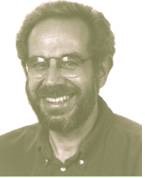Title: Benefits and Limitations of Hearing Aids
Speaker: Brian C. J. Moore
From: Department of Experimental Psychology, University of Cambridge
Time: 10:00-12:00 a.m., September 19, 2014
Place: Multifunctional Hall of DSP Building
Welcome!
Sponsors:
Science and Technology Department
Key Laboratory of Speech Acoustics and Content Understanding
Abstract:
Hearing loss affects more than 10% of the adult population in most countries, and is especially prevalent among the elderly. The most common form of hearing loss arises from dysfunction of the cochlea in the inner ear. In most cases, the only form of treatment is via hearing aids or (for profound losses) cochlear implants. In this talk I will review some of the perceptual consequences of hearing loss, which involve much more than just loss of sensitivity to weak sounds. I will then describe the signal processing that is performed in hearing aids and will consider the extent to which hearing aids “compensate” for hearing loss. Possible avenues for the future will be discussed.

Bio:
Brian Moore is Professor of Auditory Perception in the University of Cambridge. His research interests are: the perception of sound; mechanisms of normal hearing and hearing impairments; relationship of auditory abilities to speech perception; design of signal processing hearing aids for sensorineural hearing loss; methods for fitting hearing aids to the individual; design and specification of high-fidelity sound-reproducing equipment; perception of music and of musical instruments. He is a Fellow of the Royal Society of London, a Fellow of the Academy of Medical Sciences, a Fellow of the Acoustical Society of America, a Fellow of the Association for Psychological Science, and an Honorary Fellow of the Belgian Society of Audiology and the British Society of Hearing Aid Audiologists. He is a member of the Experimental Psychology Society (U.K.), the British Society of Audiology, The American Speech-Language Hearing Association, The American Auditory Society, the Audio Engineering Society, the Association for Research in Otolaryngology and the American Academy of Audiology. He is President of the Association of Independent Hearing Healthcare Professionals (UK). He has written or edited 17 books and over 590 scientific papers and book chapters. He is an associate editor of the journal Hearing Research. He chairs the research grants committee of the charity Action on Hearing Loss. He has twice received the Littler Prize of the British Society of Audiology. In 2003 he was awarded the Acoustical Society of America Silver Medal in physiological and psychological acoustics. In 2004 he received the first "International Award in Hearing" from the American Academy of Audiology. In 2008 he received the “Award of Merit” from the Association for Research in Otolaryngology and the Hugh Knowles Prize for Distinguished Achievement from Northwestern University. In 2010 he gave the Distinguished Heyser memorial Lecture to the Audio Engineering Society. He is wine steward of Wolfson College, Cambridge.